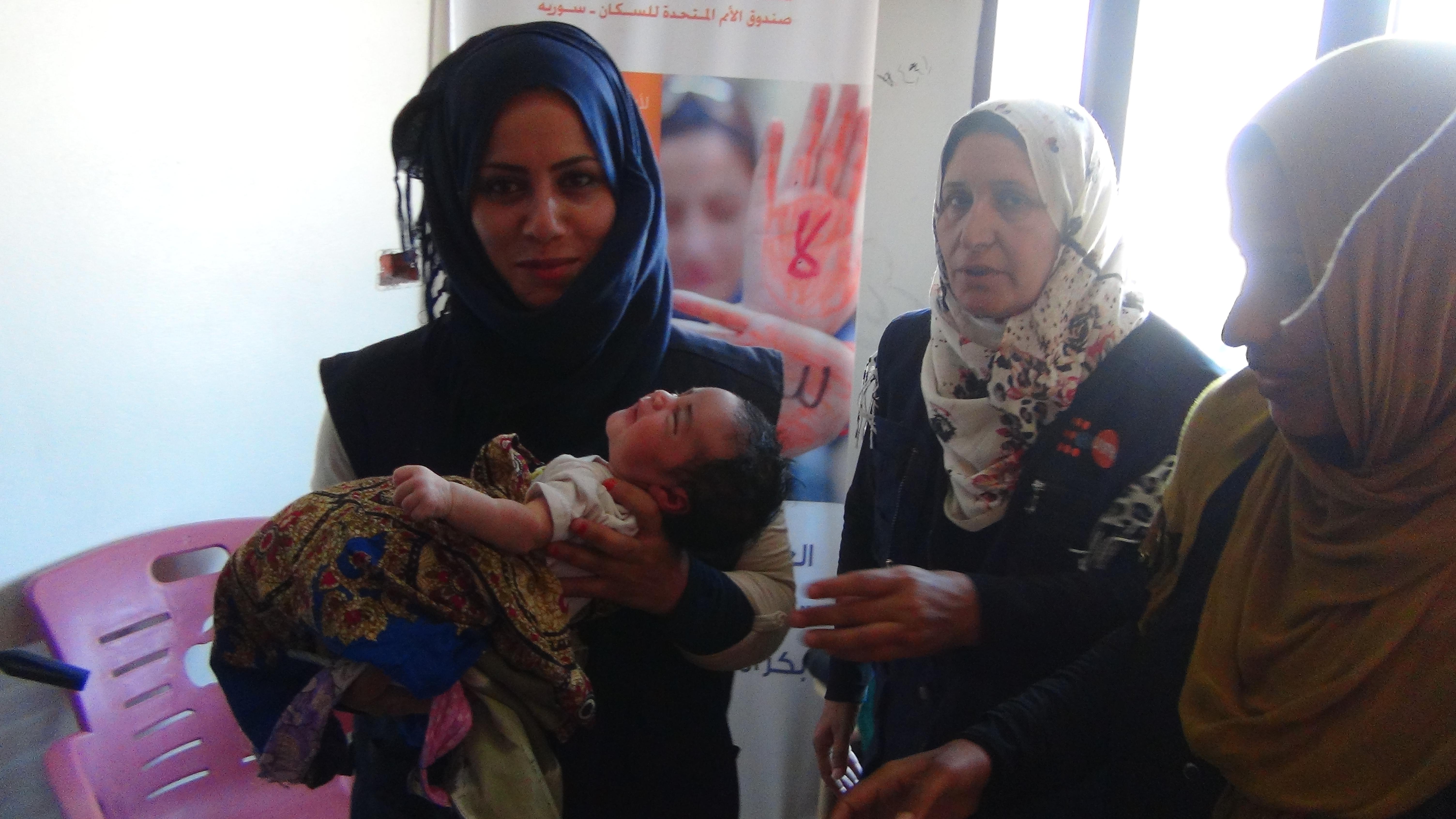On the occasion of the Brussels Conference on Supporting the Future of Syria and the Region
The dignity, protection, health and psychological wellbeing of women and girls affected by the Syria crisis should be a key priority for representatives of the international community meeting at the Brussels Conference on Supporting the Future of Syria and the Region on 5 April 2017.
Out of 13.5 million people in need in Syria, nearly four million women and girls of reproductive age have become front row witnesses and survivors of violence, including gender-based violence and early and forced marriages.
UNFPA provides lifesaving reproductive and maternal health services, including safe deliveries, inside Syria and in countries where Syrian refugees live, by supporting medical structures and personnel, such as doctors and midwives, to enable them to work relentlessly with women and girls.
UNFPA also works on mitigating and responding to gender-based violence, and provides safe spaces for women and girls, where they can receive psychological and legal support, in addition to various empowering and income generation activities, even during situations of emergencies. Protecting women and girls from violence also means offering them possibilities for education, skill building, livelihood and income opportunities that allow them to be sheltered from further need, particularly if they head households.
Inside Syria, nearly 360,000 women are estimated to be pregnant and require reproductive and maternal health services. In neighboring countries, including Jordan and Lebanon, more than 80,000 refugee women from Syria are pregnant.
In 2016 alone, UNFPA supported approximately 200,000 reproductive and maternal health services each month in Syria, including 6,000 safe deliveries. In neighboring countries, UNFPA supported 36,000 safe deliveries, including C-sections in 2016 through supporting medical structures and personnel. Access to quality sexual and reproductive health care, including voluntary family planning, can reduce maternal deaths by one third, and child deaths by as much as one fifth.
With nearly half of the population of Syria now displaced internally or to neighboring countries and beyond, UNFPA is committed to ensuring that the protection and assistance to women and girls remains a priority.


